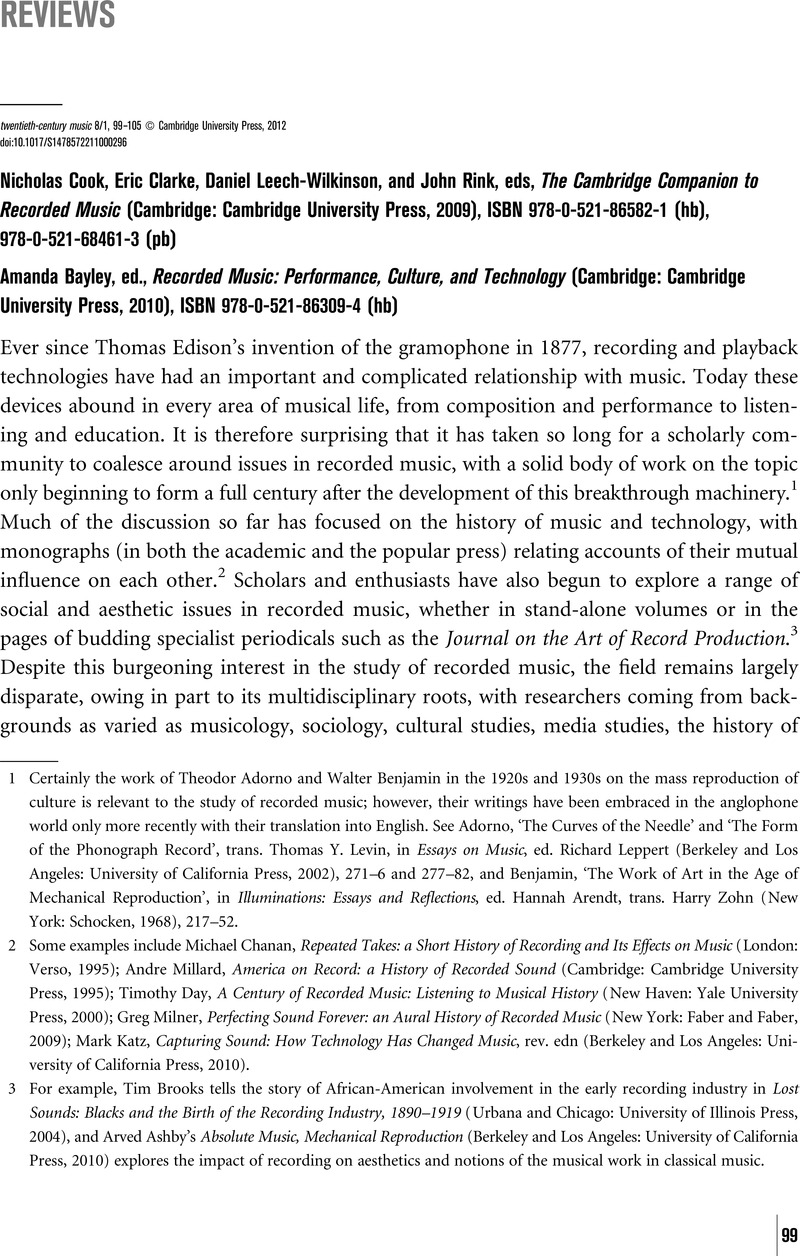No CrossRef data available.
Published online by Cambridge University Press: 23 February 2012

1 Certainly the work of Theodor Adorno and Walter Benjamin in the 1920s and 1930s on the mass reproduction of culture is relevant to the study of recorded music; however, their writings have been embraced in the anglophone world only more recently with their translation into English. See Adorno, , ‘The Curves of the Needle’ and ‘The Form of the Phonograph Record’, trans. Levin, Thomas Y., in Essays on Music, ed. Leppert, Richard (Berkeley and Los Angeles: University of California Press, 2002), 271–6 and 277–82Google Scholar, and Benjamin, , ‘The Work of Art in the Age of Mechanical Reproduction’, in Illuminations: Essays and Reflections, ed. Arendt, Hannah, trans. Zohn, Harry (New York: Schocken, 1968), 217–52Google Scholar.
2 Some examples include Chanan, Michael, Repeated Takes: a Short History of Recording and Its Effects on Music (London: Verso, 1995)Google Scholar; Millard, Andre, America on Record: a History of Recorded Sound (Cambridge: Cambridge University Press, 1995)Google Scholar; Day, Timothy, A Century of Recorded Music: Listening to Musical History (New Haven: Yale University Press, 2000)Google Scholar; Milner, Greg, Perfecting Sound Forever: an Aural History of Recorded Music (New York: Faber and Faber, 2009)Google Scholar; Katz, Mark, Capturing Sound: How Technology Has Changed Music, rev. edn (Berkeley and Los Angeles: University of California Press, 2010)Google Scholar.
3 For example, Brooks, Tim tells the story of African-American involvement in the early recording industry in Lost Sounds: Blacks and the Birth of the Recording Industry, 1890–1919 (Urbana and Chicago: University of Illinois Press, 2004)Google Scholar, and Ashby, Arved's Absolute Music, Mechanical Reproduction (Berkeley and Los Angeles: University of California Press, 2010)CrossRefGoogle Scholar explores the impact of recording on aesthetics and notions of the musical work in classical music.
4 AHRC Research Centre for the History and Analysis of Recorded Music <http://www.charm.rhul.ac.uk> (accessed 20 January 2012).
5 Centre for the History and Analysis of Recorded Music, King's College London <http://www.kcl.ac.uk/artshums/depts/music/research/proj/charm/index.aspx> (accessed 20 January 2012).